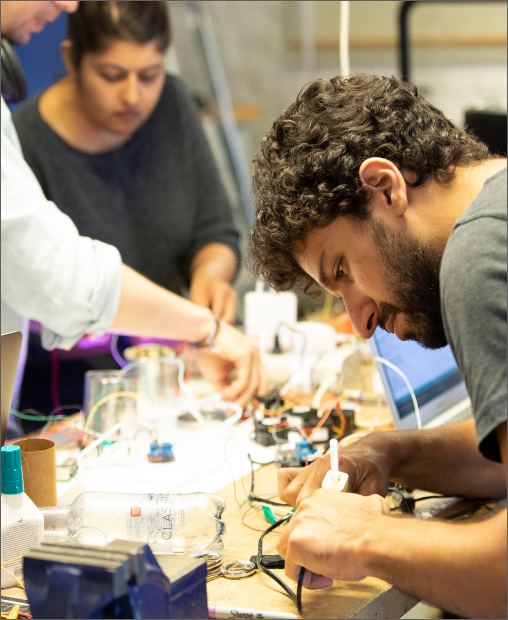CURRICULUM
The Interaction Design Programme teaches fundamental skills, methods and tools related to tangible interactions, screen-based interfaces and strategic interventions. We continually develop our definition of interaction design through the evolving nature of our holistic curriculum. It covers a wide range of topics and technologies including life-centred research, graphical user interfaces, physical computing, AR, AI, machine learning and service design. Taught by leading experts in the field, the curriculum is updated each year to include new topics and technologies that reflect the demands of industry - and to push the boundaries of the discipline.












































.svg.png)



